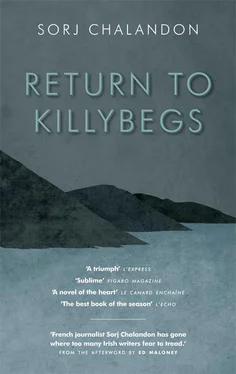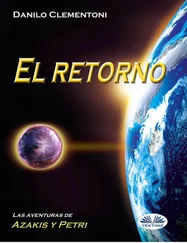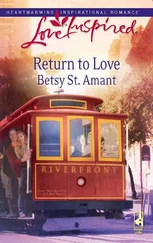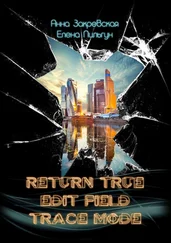Jim made fun of me. He thought me a narrow-minded nationalist. One day, he asked me if I had even been out of Ireland. If I’d crossed the sea. If I’d heard a single foreign language in my whole life. If I’d come across a single viewpoint from elsewhere. If I had even the slightest idea of what Rome or Brussels was. If I’d even looked beyond my own backyard. He was hitting the nail on the head. I hadn’t yet betrayed Belfast for Paris. We were in the Thomas Ashe, ordering rounds. It was before the grass informed on me. Antoine was there, listening to us without speaking. They exchanged a quick, amused look. I said to myself that those two were up to no good. And I was right.
The wee Frenchman had made the most of my thirteen months under the blankets to defy me. Jim had arranged a discreet meeting between Antoine and an international affairs officer. Antoine was a Parisian violin-maker, probably unknown to British intelligence. Of course, he strode up and down our streets and drank in our clubs, but so did many others. He played the violin, that was his weapon. In the eyes of the police, he was an idealist looking for inspiration for his compositions.
Jim made enquiries. Antoine was living on a quiet street that led on to boulevard des Batignolles, the instrument-makers’ quarter. He had an unused utility room to which he gave Jim the key, on an anchor keyring. It became a hideout, with an inner yard and a simple low wall joining the neighbouring building. There were three metro stations at equal distances — Rome, Liège and Europe. It was an ideal, quiet location. Several of our lads stayed one after the other under this Paris roof. John McAnulty, Mary Devaney and Paddy Best. None of them ever met Antoine.
He also transported money to pay for somebody’s passage, and more money another time to assist several combatants on their way to Hungary. Twice, he hired cars with false French papers. He hid bulletproof vests in his workshop. He served as a translator. He accompanied an IRA officer on a night train from Paris to Bilbao. He didn’t ask any questions. Our reasons gave him a clear conscience and our suffering gave him conviction.
When I learned that Antoine had assisted the IRA, I went to see Jim. The exchange was heated and brief. I was his OC. I demanded the names, the places, the dates, the facts. The Frenchman was to be left outside all of that.
The following Saturday, I led the wee Frenchie into a room in the Thomas Ashe, a corner to ourselves, behind the bar. A man guarded the door. Antoine sat down and I remained standing. I threw his key on the table. The anchor.
— What is that?
He looked at me, flabbergasted.
— The key to my place.
— Who did you give it to?
He lowered his eyes.
— Who to, son?
He shook his head. He didn’t know their names. I was whispering. The clamour from the bar came to us in waves. On the stage, the band was playing ‘Danny Boy’.
— You are not Irish, Antoine.
I whispered it to him gently, the way you’d deliver bad news.
— What would you be if you weren’t Irish, the owner of Mullin’s had once asked.
— I’d be ashamed, my father had replied.
I leaned back against the wall as I told him that he was Antoine the violin-maker, not Tom Williams, not Danny Finley. He was a friend of Ireland, a comrade, a brother, but also a bystander. He had no ancestors who had died during the Great Famine, no grandfather who was hanged by the English, no brother who had fallen in active service, or sister who had been locked up. I told him that by indulging himself, he was putting people in danger.
Indulging? He gestured in protest.
— We’re not playing at war, we’re making it, son.
I told him that he couldn’t claim our anger.
And then I sat down across from him. I placed my hand on the table, palm up. I asked him to place his alongside. My farmer’s hand, his musician’s hand. Tyrone’s skin, Antoine’s skin. One worn by brick, the other polished by wood. Leather and silk.
— Promise me you’ll drop all that.
He looked at me.
— Promise me, I repeated.
I told him that he would remain our wee Frenchie, our violin-maker. He’d talk to us of maple, ebony, boxwood, rosewood. He’d place a cylinder of pale wood between our pints, swearing on his life that it was the soul of a violin. He’d play drunken jigs for us, the national anthem, a lament beside a grave to mourn one of our own. He would be our reflection and our difference.
— I promise you.
He had understood.
Then I leaned over the table and took his face between my hands.
— You wee insignificant volunteer.

Thomas McElwee died on 8 August 1981, at twenty-four years of age, after sixty-two days of hunger striking. Micky Devine went on 20 August after sixty days of fasting. He was twenty-seven.
That’s when the family of a hunger striker asked for an end to the suffering. A father and a mother, sitting at the bedside of death, warming up the hands of their lifeless statue with their own hands. Their son had fallen into a coma. They gave their consent to have him fed. Then another mother gave in. And another. And another. And another eight mothers who each refused to lose her child.
The hunger strike officially ceased on 3 October 1981 at half past three. One hundred volunteers were signed up to join the protest in turn. Some had secretly pushed their names up the list to start sooner.
Several days later, the prisoners were given authorization to wear civilian clothes, but not to claim they were political prisoners.
Margaret Thatcher never yielded, it was said.

Antoine had followed the martyrdom step by step. He was infuriated by his powerlessness. He observed our distress as a witness kept at a distance.
— You don’t think that the Frenchman might be useful to you?
I hesitated, looked at Waldner.
— Which Frenchman?
The British agent gave me a pitying look.
— Ah now, Tenor! None of that between us, come on.
I remained silent. I didn’t know what he knew.
— Antoine Chalons, the name doesn’t ring a bell?
We were walking along the street, sheltered under a large umbrella.
— Nobody wishes him any harm, this Antoine of yours.
He looked at me, smiling.
— On the contrary, in fact, Meehan. On the contrary.
I had my hands in my pockets. I was squeezing my left thigh between my thumb and index finger so hard I could have screamed.
— You were right to advise him to quit his stupidity, but that doesn’t suit us at all.
I looked at him.
— He has nothing to do with all that.
Waldner stopped dead. I met his gaze.
— Nothing? He’s hiding terrorists, he’s moving dough around, and you call that nothing?
— You’re bluffing! You haven’t any proof.
— The French police have everything they need. His workshop is under surveillance, and I’m suggesting to you that we place him under protection.
He had started walking again. I threw him a foolish question.
— What do you want?
Waldner lit a cigarette while keeping an eye on the street.
— The French are watching him but we’re going to reassure them. We’ll tell them that we need this guy. That they shouldn’t take him in.
That day, I refused to enter the cemetery. Pretending to pay homage to a hero in the company of the enemy was killing me. Waldner was courteous, as usual. He didn’t give any orders, he made suggestions. He asked me to use the end of the strike to appear to change my mind regarding Antoine. I’d have to see him again. Invite him into our secret circle. Ask him for his key.
Читать дальше













